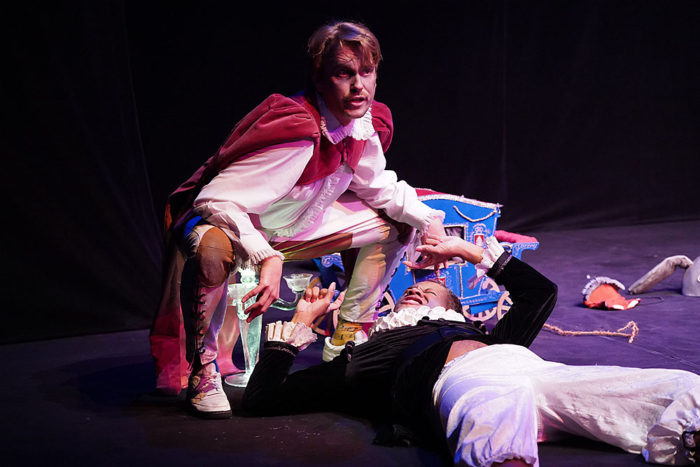Nicholas Grafia & Mikołaj Sobczak

Today, in the face of a socio-economic crisis, the subjectivity of persons comprising the LGBTQ community is called into question again, which can be considered as one of the “imaginary social ills” of the twenty first century, for where if not on the streets of our cities are the key manifestos of marginalized bodies and voices proclaimed today?1 One can imagine that soon, in opposition to “LGBT ideology-free zones,” a slogan accepted and embraced particularly in the eastern part of the country, many cities will declare themselves open and tolerant – and Zielona Góra will in all likelihood be among them. Is this a vision that makes everyone happy? Or perhaps this declaration of openness is but carefully concealed conformism?
The word “future” figures in the subtitle of the Zielona Góra Biennale, not only as a token of an optimistic (for the future may not happen at all) promise, but also in reference to a slogan that until only recently promoted Zielona Góra as a “City of the Future.” Perhaps the difficulty of imagining how the vision could be realized has caused this piece of marketing creativity to go out of use. Or perhaps it means that the future has already happened? If so, then what were the postulates? It not was the elimination of car traffic from the city centre (which took place in the 1960s) or a return to conceptions proposed by the Groupe International d’Architecture Prospective (GIAP) in an almost forgotten presentation at one of the first editions of Golden Grape (1967). Today, years later, when the City Hall declares support for equality movements, including a friendly attitude towards the LGBTQ community, one is tempted to verify the slogan’s validity.
Artistic duo Nicholas Grafia and Mikołaj Sobczak will present a performance piece titled Rooms (2020), evoking, on a single stage, cross-fading events and places from the past, and referencing, among other things, the pandemic, which has intensified the marginalization of an already almost invisible minority. The performance has the narrative structure of a collage, where each scene separately evokes forgotten events relating to resistance against systemic oppression and a struggle for emancipation, often taking place at private homes.
Nicholas Grafia & Mikołaj Sobczak, Rooms, performance
Friday, 16 October, 8 pm
Lubuski Theatre, Zielona Góra, Sala Kameralna (?)
Mikołaj Sobczak (b. 1989) and Nicholas Grafia (b. 1990) are authors of on-stage and for-camera performances in which they reference marginalized or unacknowledged protagonists of equal-rights movements and their stories. Grafia graduated from the Kunstakademie Düsseldorf in the class of Dominique Gonzalez-Foerster, and had previously studied at the Kunstakademie Münster and read British, American and Postcolonial Studies at the University of Münster. Sobczak graduated from the Warsaw Academy of Fine Arts in Mirosław Bałka’s Spatial Activities Studio, and from the Kunstakademie Münster in the class of Aernout Mik. Their joint works have been presented at the Museum Ludwig in Cologne, Kunsthalle Düsseldorf, Kunstverein für die Rheinlande und Westfalen in Düsseldorf, Dortmunder Kunstverein, Capitain Petzel Gallery in Berlin, or the Museum of Modern Art in Warsaw, among other venues. In the near future they will be showing their works at the Haus der Kulturen der Welt in Berlin and as part of the Moscow Biennale.
1 Łukasz Drozda, Dwa tysiące. Instrukcja obsługi polskiej urbanizacji w XXI wieku (Warsaw: Bęc Zmiana, 2018), pp. 16, 142.